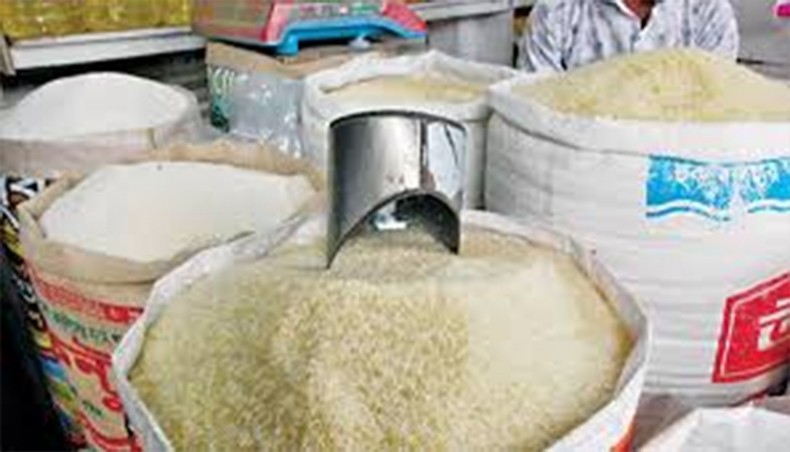Economists, farmers decry Bangladesh’s rice import decision
The government has started importing rice amid continued refusal of local millers to supply the staple despite legal obligation.
The decision to import rice in December when aman harvest reaches its peak is set to take a toll on farmers by lowering further the existing price of aman paddy while they are not even fetching the production cost.
Economists found no justification for rice import when largely impoverished local growers are losing their investment thanks to a food supply chain fraught with corruption and poor procurement mechanism.
Dhaka University department of development studies’ professor Rashed Al Mahmud Titumir told New Age on Monday farmers would face further fall in price of aman although they committed no error for depleting public food stocks.
To him, the government’s move was nothing but policy errors that would only benefit vested quarters.
Echoing similar views, former professor of economics at Jahangirnagar University Abdul Bayes said, ‘growers are put in a difficult situation with millers not giving them legitimate price and the government preferring international market to them.’
He said that all local millers wanted the government to do at the moment was to go for import so that they could pay farmers even less in order to build a good stock of the staple.
The millers previously reneged on their deal during boro procurement that ended in September, leading to the government’s failure to procure only 1.95 million tonnes despite bumper production of 20 million tonnes.
The government managed to buy only 0.94 million tonnes of boro rice and paddy. Boro rice is mostly stocked by millers.
The poor procurement caused the government stock to rapidly decline which plunged to 5.64 lakh tonnes on Monday, nearly half the stock the government had on the corresponding day last year. The desired stock is 1.3 million tonnes.
The actions taken by the government against the millers after poor boro procurement apparently made no impression as they refused to supply aman to the government too.
The government has plans to buy 6.5 lakh tonnes of aman rice at Tk 37 per kilogram from the millers but received response from only a handful of millers promising to give only 72,000 tonnes so far. They did agree to sell rice at a cost below Tk 41 per kilogram.
The government announced its fixed price for aman rice and paddy over a month ago.
The government is expecting the aman production to reach 13.9 million tonnes this year after a 10 per cent fall in the production of the 2nd most important rice of the country compared with last year.
‘The government has taken the right decision by importing rice,’ said KM Layek Ali, secretary general of Bangladesh Auto Major and Husking Mill Owners Association.
He said that they promised the government to provide 20 per cent of the targeted procurement amount.
‘We request all to wait with patience,’ said Layek Ali.
But farmers, nearly half of them are so poor that they do not possess any farmland and they cannot afford to wait after harvest as they have no place to store rice.
They are forced to sell 60 per cent of their paddy in the first month after harvest.
In economically stressed condition farmers are forced to let go of their produce even faster.
Farmers are in unprecedented economic stress after going through multiple floods amid the coronavirus crisis since March.
Bangladesh Rice Research Institute estimated that farmers were selling a kilogram of paddy for Tk 22 in many northern areas such as Kurigram.
The government is procuring only 2 lakh tonnes of aman paddy at Tk 26 per kilogram from farmers.
The Department of Agricultural Extension calculated that farmers spent more than Tk 27 for producing a kilogram of paddy this year after flood destroyed many of their rice fields multiple times.
Bangladesh Rice Research Institute’s agricultural economist Abdur Rouf Sarkar said that the market price might fall by Tk 2.5 per kilogram because of the import.
‘The government should procure more from farmers,’ said Rouf.
He said that the government import should not exceed 1,00,000 tonnes.
Directorate General of Food is planning to import 3,00,000 tonnes by January.
‘We recommended to the purchase committee for appointing an international bidder for importing 50,000 tonnes in the first consignment,’ said DG Food additional director Moniruzzaman.
He said that they proposed paying $417 per tonne to import rice, which stands at nearly Tk 35.5 per kilogram. The market price for per ton of boiled rice in India, Thailand and Vietnam ranged between $368 and $485 on Monday.
Abu Sayeed, a farmer of Aditmari, Lalmonirhat, is scared at the prospect of paddy price reducing further. He sold per maund at Tk 960.
‘I cannot think of getting any less. How will I survive?’ asked Sayeed.
Agricultural economists have long demanded that the government buy paddy directly from farmers. But the government has always cited the lack of milling capacity for mostly buying rice from millers.
The limited direct procurement of the government from farmers is fraught with many problems. Farmers are often returned for failing to supply paddy at the right moisture level or unless they bribe food officials.
Paddy changes three layers of middlemen before it reaches millers with its price soaring at every layer.
‘The government should have reformed its procurement mechanism and strengthened the food chain instead of finding a solution in rice import,’ commented Abdul Bayes.
News Courtesy: www.newagebd.net











